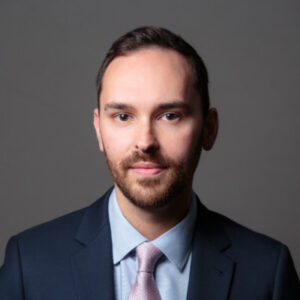Takeaway
The pandemic has created more stress for everyone, including healthcare professionals. Finding a relaxing activity to practice regularly can help you persevere.

Lifelong Learning in Clinical Excellence | August 25, 2020 | 4 min read
By Andrew Philip, PhD, Primary Care Development Corporation
The myth of the “healthcare hero”
Dr. Brown’s assistant cautiously dabs a descending bead of sweat traveling her brow just as she completes the final suture on the abdomen of a young man lying on the operating room table. With compliments of her precise and life-saving work pouring from technicians and supporting clinicians in the room, Brown releases a sigh of satisfaction as she removes her gloves and prepares to breeze out of the room. Perhaps a few rounds of golf are in order to close out the day, or maybe a nice dinner out with the hubby and kids? She muses over her options as she removes her mask and heads upstairs to her office for some quiet time to write up a few notes before heading out to enjoy the remainder of the afternoon. Her brilliant white coat, flowing triumphantly behind her, catches the eye of an admiring young resident. You really can have it all, he marvels as Dr. Brown effortlessly floats out of view.
“Healthcare heroes” are dramatized in popular media and amidst the global COVID-19 pandemic have been elevated to “superhero” status. Now, as the nightly cheers that echoed through many U.S. cities during the 7 p.m. shift change begin to fade and the reality of life during the pandemic has set in, the actualities of being present with patients on the front lines of healthcare are also painfully apparent.
The real human being
There is nothing glamorous about healthcare work right now. Brown’s relaxing, maskless stroll down the hospital corridor isn’t happening today. Chances are, her quiet office retreat is more likely a kiosk amidst blaring overhead announcements, or an exhausted pause in a breakroom where the coffee machine is in the process of having its own COVID-19 swab test (yes, that’s really a thing).
As we all know, stress doesn’t stop when work ends. Healthcare professionals, like everyone else, live within the realities of being human. Many clinicians are struggling to meet incredible demands of patient care while also living life in the real world. Our world seems to be full of uncertainty, deeply differing ideals, and injustice.
In another time (another universe?), a stressed clinician might take a nice trip away, work with supervisors to create more manageable expectations, visit with friends, or perhaps find a tranquil place to breathe and reflect. Enter reality—we can’t fly to Bali right now. Whether demands at the hospital are self-imposed from a sense of duty. or simply by the level of patient need, they can’t be ignored. Visits with friends and family are controversial and complicated (can you really be six feet away in mom’s living room? Why doesn’t your buddy seem to understand that masks aren’t chin ornaments?). There seems to be no perfectly relaxing places at home or work during the pandemic.
So, what can we do to mitigate our stress?
1. Define what you’re doing and why.
It may seem simple, but reconnecting with the meaning of our work is critical to managing stress and finding meaning in our daily lives. Yes, you intubated the guy in room six, but what are you really doing? Alleviating suffering? Giving someone an opportunity to see their children again? Perhaps the alarm clock or your screaming pre-schooler (when do schools open again?) are what got you out of bed, but do remember why you chose the first place? Was it to provide better care for low-income communities, to support your family, or just because medicine is truly is fascinating? Jot your reasons”why” down, stick them on your mirror, set them as reminders in your phone, talk to someone about them, do whatever you can to remind yourself and then do it again.
2. Practice strategies that actually work.
Mindfulness meditation, deep breathing, gratitude, and a number of other resiliency strategies are supported by decades of research and can help us be present through this stressful time. Can you turn the ringing unit-phone into a cue to take two deep breaths? Can you pause for 30 seconds when you grab your next cup of cafeteria coffee, taking in the aromas as you hold that warm cup and sip the deliciously bitter drink with every sense you’ve got?
3. Know when to get help.
There’s still a stigma around clinicians seeking help. Fortunately, this is starting to change with new guidance to reduce invasive licensure and credentialing questions about mental health. Telehealth options to connect with a therapist or psychiatrist is also helping. You can now obtain relatively affordable counseling from the privacy of your home (or car, walking trail, or wherever you find privacy amidst crowded homes and busy clinics).
Getting help can also look like giving help.Helping to heal others can actually be quite therapeutic. Lend an ear to peers dealing with similar concerns. Of course, remember your boundaries and avoid taking on their problems as your own.
There’s no way out of the pandemic but through it and getting through it can be stressful. Healthcare professionals are certainly heroes, but if there has ever been a time to allow ourselves to swap that cape for an occasional pillow and a listening ear, it’s right now. By acknowledging what’s difficult and finding strategies that may not be perfect but work for now, we’ll make it through this challenging time.
“A real hero and a real human being” is a line from the acclaimed song, “A Real Hero,” by College & Electric Youth. We have permission to use the line as the title of this piece.

